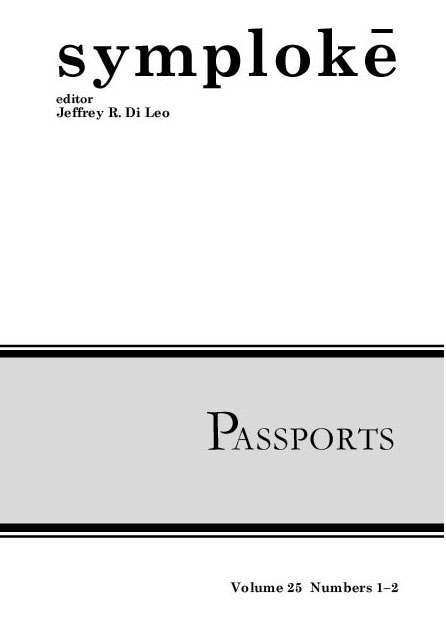
Volume 25, Numbers 1-2

This issue explores the implications of the passport as a crucial, yet imperfect instrument of state power. How do passports restrict or enable mobility, and what social logics determine the distribution and granting of access in a globalized world? What are the social, political, economic, and intellectual dimensions of passports in the contemporary world? What are the philosophical and critical dimensions of the passport?
Contents
Jesper Gulddal and Charlton Payne
Passports: On the Politics and Cultural Impact of Modern Movement Control
Étienne Balibar
Reinventing the Stranger: Walls All Over the World, and How to Tear Them Down
Jesper Gulddal
Porous Borders: The Passport as an Access Metaphor in Laurence Sterne’s A Sentimental Journey
Joshua L. Miller
‘In The Dream Of Their Dreams’: Metaamericanism In H.T. Tsiang’s And China Has Hands
Søren Frank
The Novel and the Borders of Europe: Ben Jelloun’s Leaving Tangier and Oksanen’s Purge
Paula C. Park
Chile’s Limited Passport Into The Global Literary Market
Andres Amerikaner
Xerox Men: Technological Tropes In U.S. Latino/A Displacement Literature
Charlton Payne and Wolfgang Struck
Somewhere Else: Legal Fictions, Capitalism, and Deterritoriality in B. Traven’s The Death Ship
Nissa Ren Cannon
‘A Unique Plan of Getting Deported’: Claude Mckay’s Banjo and the Marked Passports
Leti Volpp
Passports in the Time of Trump
Joseph Vogl
Asylum of the Political: Towards a Topology of Political Occasions